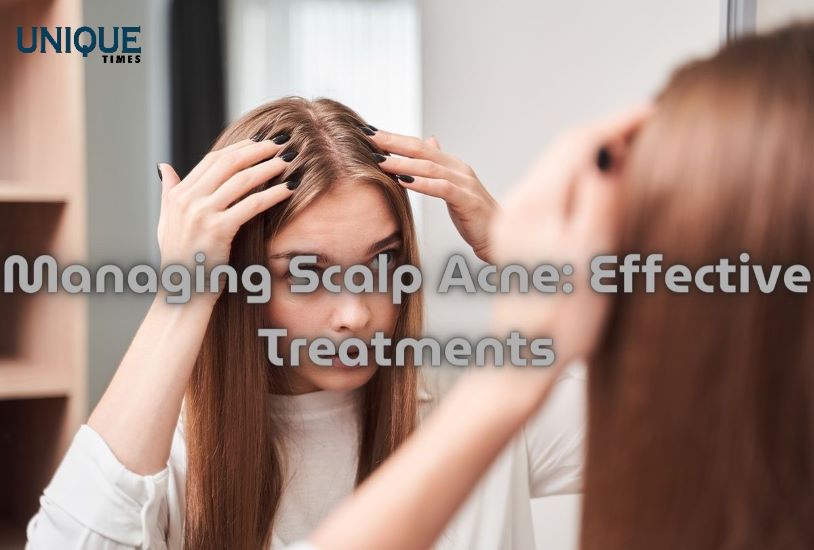Understanding Scalp Acne: Causes and Effective Treatments

While acne is commonly associated with the face and other parts of the body, scalp acne remains a lesser-known yet prevalent condition that can cause discomfort and inconvenience. Characterized by the presence of pimples, pustules, or cysts on the scalp, this condition can be triggered by various factors. In this blog, we delve into the causes of scalp acne and explore effective treatments to alleviate this bothersome yet manageable condition.
Causes of Scalp Acne
Scalp acne can arise due to several factors, including the overproduction of sebum, the clogging of hair follicles, the presence of bacteria, or an accumulation of dead skin cells. Certain lifestyle factors, such as stress, poor hygiene practices, or the use of certain hair products, can also contribute to the development of scalp acne. Understanding these underlying causes is crucial in implementing effective treatment strategies.
Identifying the Symptoms
Scalp acne can manifest in various forms, including the appearance of red, inflamed bumps, pustules filled with pus, or painful cysts. It can also lead to itchiness, tenderness, and discomfort. Recognizing the symptoms of scalp acne early on can facilitate prompt and targeted treatment, preventing the condition from exacerbating and causing further complications.
Effective Treatment Approaches
- Gentle Cleansing: Using a mild, pH-balanced shampoo and conditioner can help in maintaining scalp hygiene without stripping away essential oils or exacerbating acne.
- Topical Treatments: Incorporating topical treatments containing ingredients like salicylic acid, benzoyl peroxide, or tea tree oil can aid in reducing inflammation and combating the bacteria responsible for acne formation.
- Avoiding Harsh Hair Products: Eliminating the use of harsh hair styling products and minimizing the exposure to potentially comedogenic or irritating ingredients can help in preventing further aggravation of scalp acne.
- Stress Management: Practicing stress-relief techniques, such as meditation, yoga, or regular exercise, can contribute to overall well-being and help in managing scalp acne triggered by stress-induced hormonal imbalances.
- Consultation with a Dermatologist: Seeking guidance from a dermatologist can provide personalized insights and recommendations for effective treatment, especially in cases where scalp acne is persistent or severe.
Preventive Measures for Scalp Acne
Implementing preventive measures can significantly reduce the likelihood of recurring scalp acne. This includes maintaining a healthy scalp hygiene routine, avoiding the use of pore-clogging hair products, and following a balanced diet rich in essential nutrients and antioxidants. Additionally, minimizing stress levels and adopting a proactive approach to managing scalp health can contribute to preventing the onset of scalp acne.
Conclusion
Scalp acne, although often overlooked, can be effectively managed with the right approach and treatment. By understanding the underlying causes, identifying the symptoms, and adopting appropriate preventive and treatment measures, individuals can alleviate the discomfort associated with scalp acne and maintain a healthy, balanced scalp environment conducive to overall well-being.
Picture Courtesy: Google/images are subject to copyright







